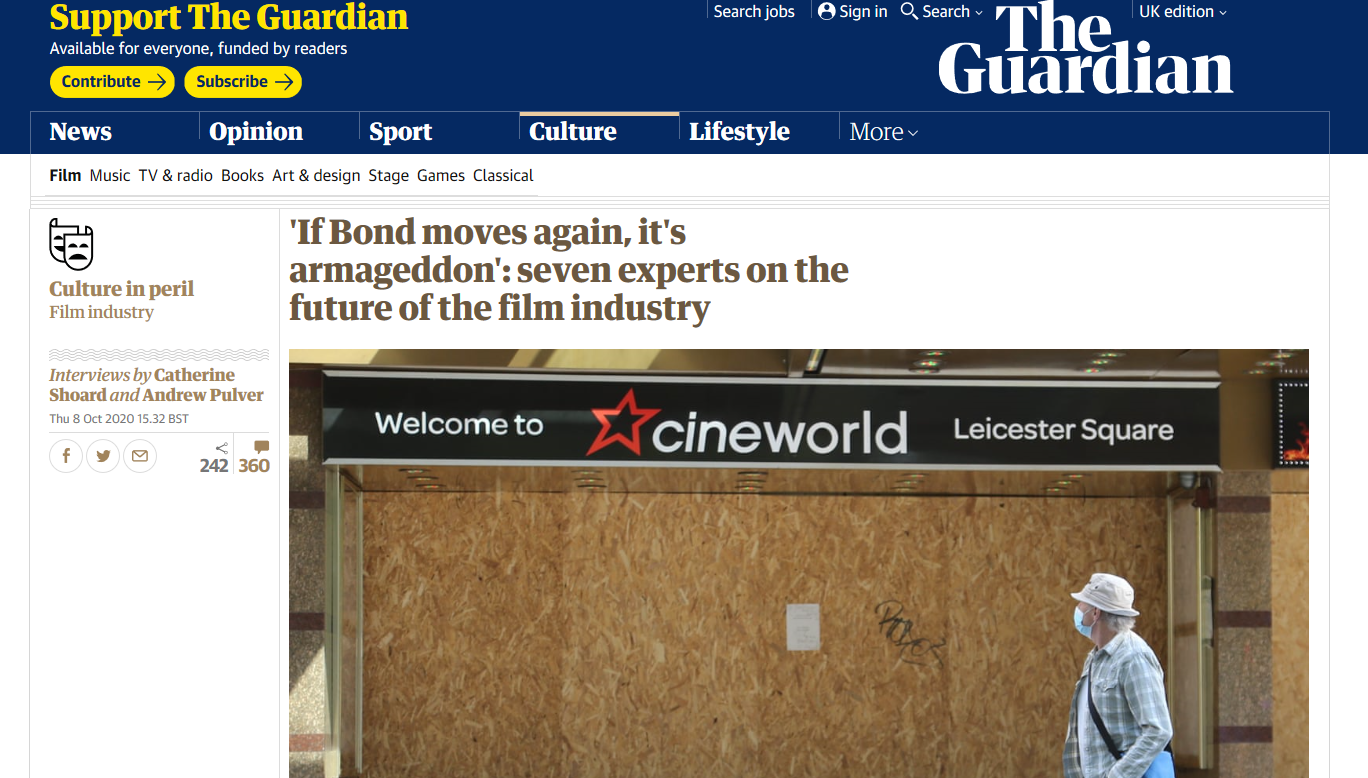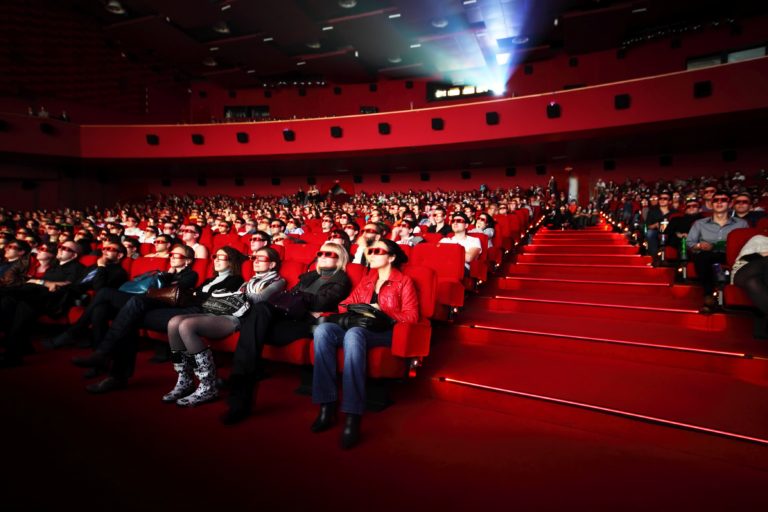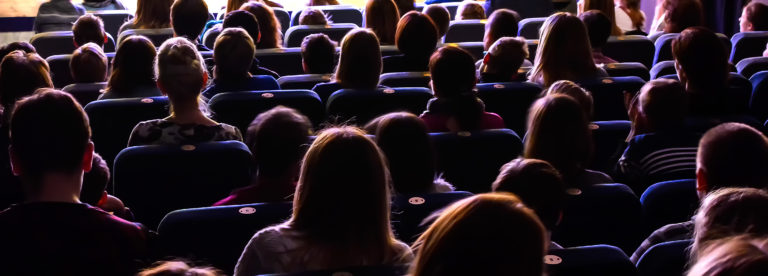Gower Street’s Senior Box Office Analyst Delphine Lievens was one of seven industry experts invited to discuss the future of the theatrical film-going in The Guardian on Thursday (Oct. 8). In the wake of latest moves of titles including NO TIME TO DIE and DUNE out of 2020; the complete theatrical loss of Pixar’s SOUL; and the closure of Cineworld cinemas, the piece (titled: “If Bond moves again, it’s armageddon’: seven experts on the future of the film industry“) asked how those in the film industry see the future?
As well as Delphine, interviewees included Variety‘s Executive VP of Content Steven Gaydos; film critic Kate Muir; veteran publicist Charles McDonald; Curzon’s Jake Garriock, Head of Distribution Strategy; CEO of Modern Films, Eve Gabereau; and producer and director-at-large of Birds’ Eye View Film, Mia Bays. Interviews were conducted by Guardian journalists Catherine Shoard and Andrew Pulver.
Delphine said that while the immediate future “is quite concerning”, with “the rest of this year looking quite bleak in terms of product coming to cinemas”, that there was positive news to be seen. “It’s worth looking at how cinemas have been coping so far as well,” said Delphine. “Because we’ve had TENET, cinemas have stayed open since then, that’s over a month now. And there are other films that have had moderate success, such as AFTER WE COLLIDED, and UNHINGED which is nearly at £2 million. Audiences have been receptive to non-studio films, and a lot of cinemas have been doing repertory programming where audiences are more open to that sort of thing: independents, the Curzon, Everyman chains etc. It’s the chains willing to be a bit more flexible that are doing all right at the moment.”
“There’s also a clear gap in the market for family product, too,” Delphine continued. “Non-studio animations like the Australian indie 100% WOLF (£1.4m at the box office to date) are performing far above expectations when usually they struggle to compete with the likes of Disney/Pixar, Illumination etc. So there are still glimmers of hope, and there are still lots of independent films to come this year.”
Delphine argued that one of the big challenges facing the UK is that “we don’t have a great depth of local content.” “A lot of the territories where they are not struggling quite so much at the box office they have productions that are taking up the space that would have been filled with Hollywood content. Those markets are in no way fully recovered, but they are at a steady enough level to keep going for the rest of the year.”
She said there was a “lack of nuance” to Cineworld’s approach, especially when in came to its Picturehouse circuit, and that the exhibitor’s decision to re-close, combined with the Bond film move, “rocks people’s confidence”.
She argued that while Hollywood studios are too narrowly-focused on the North American market and efforts to avoid losses in 2020 they were acting as if coronavirus would not be a problem going into 2021. “The reality is that there are now too many films for 2021,” said Delphine. “You’d think that as TENET did OK outside the US it would give them confidence, but in this country all the Hollywood output is controlled from the US, and I don’t think they have a handle on how things are going internationally.”
In conclusion, Delphine said she was “cautiously optimistic that the industry can evolve from this.”
“We can see that we need to be making more British films, for example; we can see that people will watch non-studio content if it’s given strong enough marketing and attention. There are lessons to be learned from this, but I don’t think it’s the end of the world. I have been tracking a steady recovery for some time, though of course losing Bond is a big blow and it looks like the box office will dip in November. But I don’t think we’re quite at the end of cinema as we know it – for now.”
The article was also picked up by Spanish publication Tomatazos.
Read the whole article, including the views of the other experts here.




